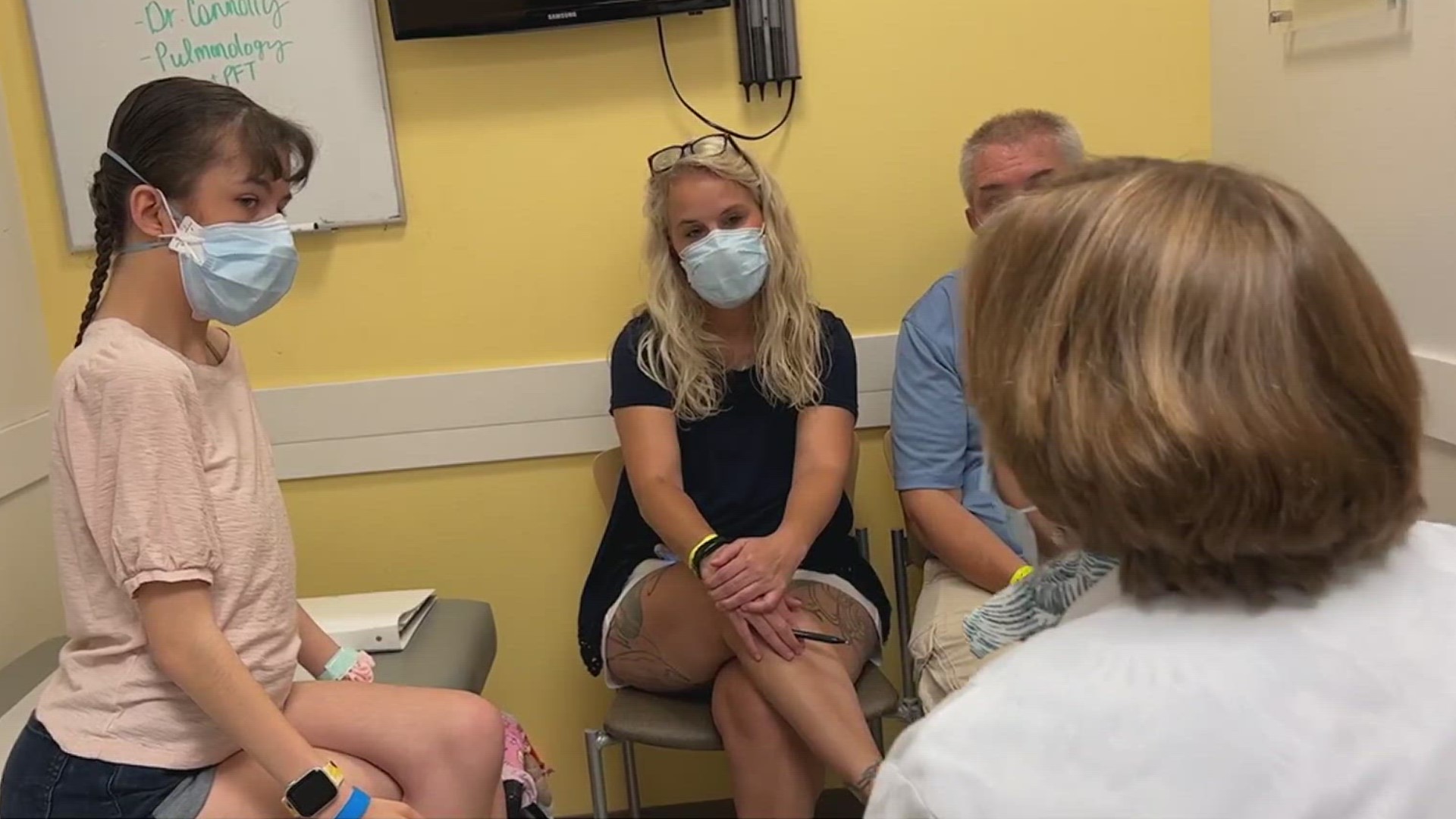COLUMBUS, Ohio — Advances in genetic testing are now identifying causes of thousands of rare diseases.
Until recently, the millions of people living with one of an estimated 10,000 conditions caused by a variant in a single gene were often left searching for answers as to what was actually causing their symptoms.
Now, new technology is giving a teenager and her parents the answers they've been looking for her entire life.
When Summer Nagele was born, she struggled with breathing, feeding and mobility, and a cleft palate that was repaired before her first birthday.
“She couldn't lift her head up, she couldn't lift her arms up, so we knew from the first day that there was something different,” Michael Nagele, Summer’s dad, said.
These challenges were mitigated with therapies and medications, and even a diagnosis of congenital myasthenic syndrome, but the Nageles knew that CMS did not quite describe all of Summer's symptoms.
They turned to Nationwide Children's Hospital and Anne Connolly, M.D., chief of the Neurology division, for more answers.
“I will walk with you. Even if I don't know the diagnosis today, I will keep trying,” Connolly vowed.
Whole exome sequencing led to finding the real name for Summer's affliction: Birk-Barel Syndrome, a genetic condition that has been reported fewer than fifty times worldwide in scientific literature.
“There would have been no possible way to diagnose Birk-Barel Syndrome 30 years ago,” said Connolly. “In Summer’s case, we guessed a group of maybe 10 diagnoses that might fit, and none of them were correct. With whole exome sequencing, some of that guesswork is taken out. The diagnostic odyssey is absolutely shortened.”
Whole exome sequencing examines DNA sequences that impact how genes function.
“We just give the symptoms that the patient has, and they look through all of their genes to try to assess whether any alterations there could be explaining those symptoms,” said Alayne Meyer, MS, CCG, Licensed Genetic Counselor.
“Once you know the gene, that's just the starting point. You have to know what the gene is doing, and most importantly, can you help improve whatever mechanism this is impairing,” Connolly said.
The persistence of Summer's care team changed her life.
“I just like to try to be as normal as I can be, but in my own way,” she said.
The now-18-year-old is focused on her college plans. She loves photography and hopes to one day become a professional sports photographer, capturing moments of football, basketball, baseball and hockey.
“Dr. Connolly made a promise to my daughter at 8 years old, that she would find out what her diagnosis was, even if she had to name it after both of them,” said Autumn Nagele, Summer’s mom. “It took a while, but she kept her promise, and that meant the world. She never stopped looking, she never stopped trying.”

